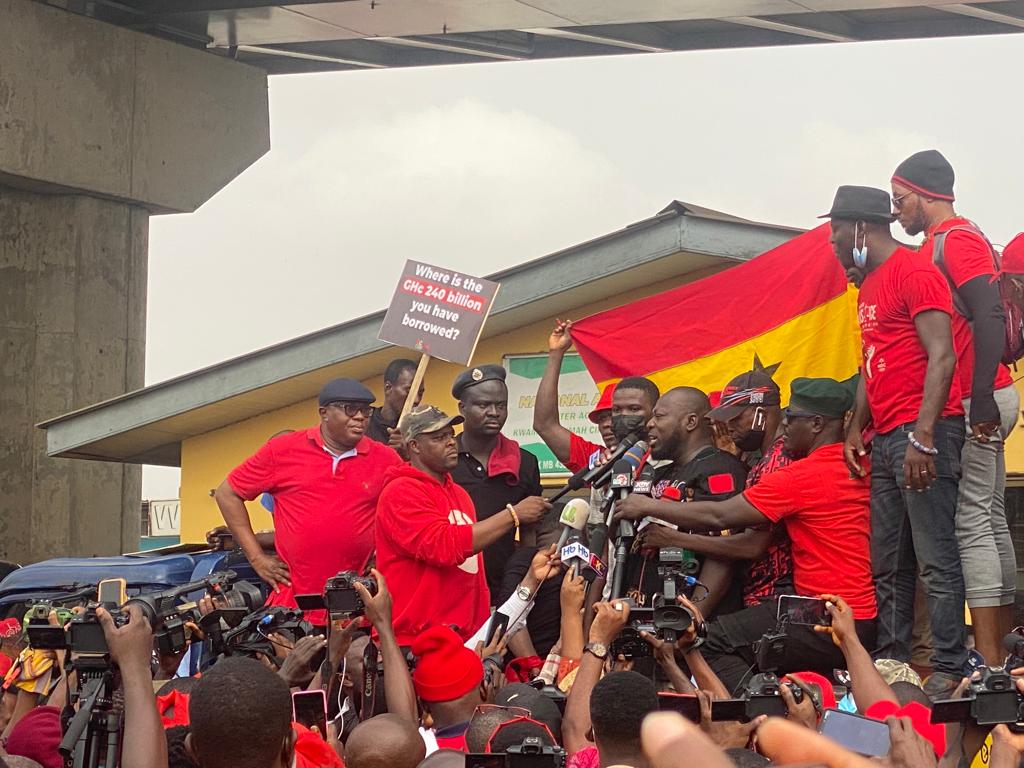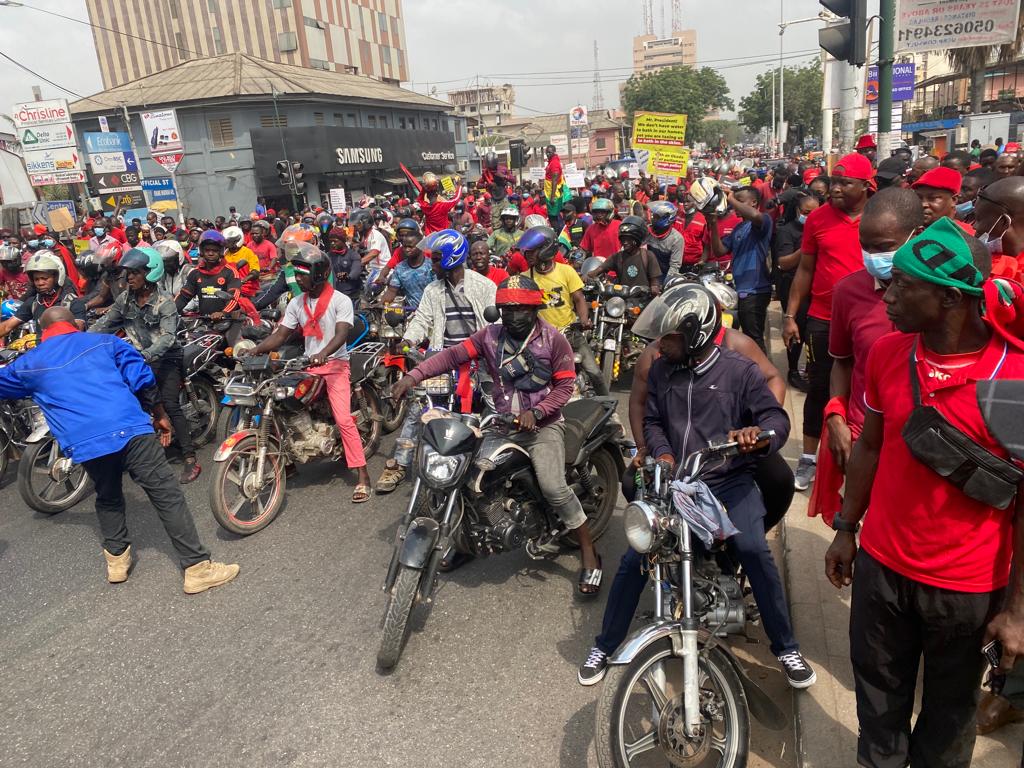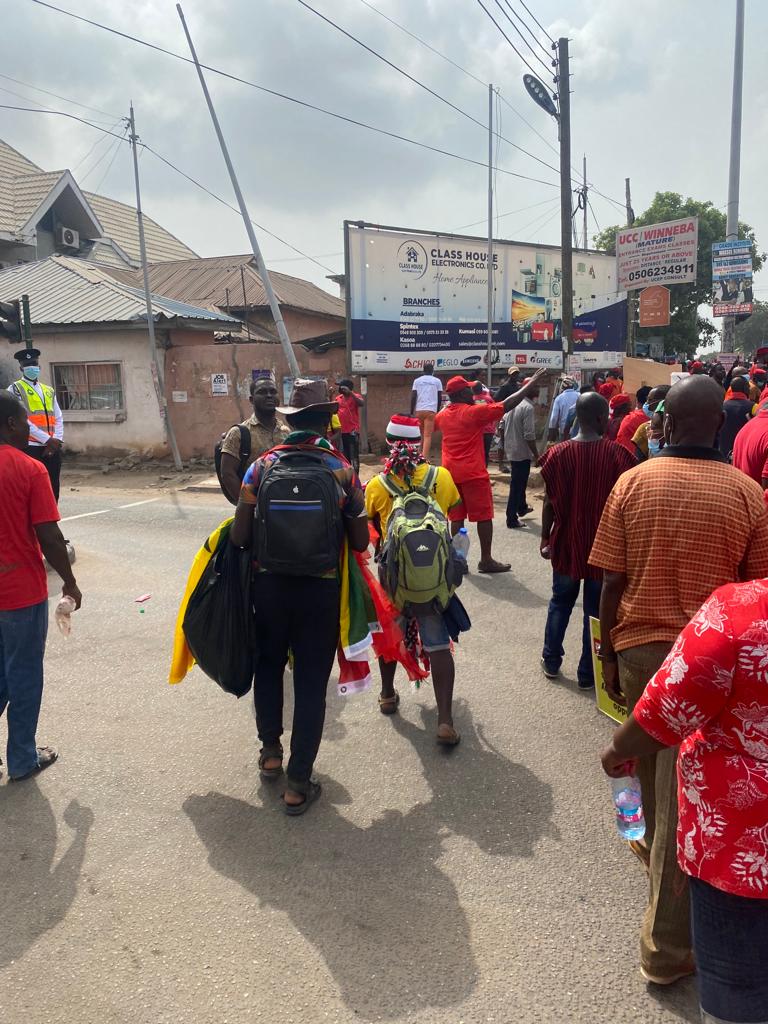E-levy is robbery, NDC will abolish it – Aseidu Nketia
Any future National Democratic Congress (NDC) government will ensure that the electronic levy (E-levy) is scrapped if implemented by the New Patriotic Party (NPP), the General Secretary of the NDC, Johnson Aseidu Nketia, has declared.
Addressing demonstrators, Mr Nketia explained the importance of tax to national development and described the E-levy as counterproductive.

He insisted that the NDC would do everything within its power to ensure that Ghanaians do not bear the brunt of the hardships associated with the levy.
“If in the unlikely event, the e-levy is passed, we will abolish it in our next government because we do not see it as a tax. It is daylight robbery,” he stressed. “That is not to say that we will not be taking other taxes, but we are saying that this is not a tax based on any value addition or production; it is thievery, it is daylight robbery”.
Leading a group of demonstrators on the ‘Yentua Demonstration’ against the proposed E-levy in the 2022 budget statement, the NDC hit the principal streets of Accra today, 10 February 2022.
Scores of the demonstrators were clad in red attire and headgear and carried placards with inscriptions such as, ‘E-levy is a no brainer to economic recovery, and we insist that Yentua!,’ You lied, Bawumia, You lied to us’, ‘Bawumia’s silence on E-levy is alarming; he used to be an economic talkative’.

The aggrieved Ghanaians converged on the Obra Spot in the morning and marched for several hours, amidst chanting of war songs and loud music.
The route earmarked for the demonstration is from the point of convergence through the Kwame Nkrumah Avenue, Farisco, Striking Force, the Kinbu Road, the Octagon, the National Theatre to the AU Roundabout, and the Parliament House.
What is the E-levy?
The E-levy is a tax applied on transactions made on electronic or digital platforms. The Minister for Finance, Ken Ofori Atta, announced in parliament the intention to implement the bill where 1.75% will be taxed on all digital transactions.
The E-Levy is expected to generate an estimated amount of GH¢ 6,96 billion in 2022, GH¢7.89 billion in 2023, GH¢8.92 billion in 2024 and GH¢10.09 billion in 2025.
It is also one of the measures to increase the country’s tax to Gross Domestic Product (GDP) ratio from 13 per cent to 16 per cent.

According to Mr Ofori-Atta, the E-Levy will not be applicable for the following:
- Cumulative transfers of GHC100 per day made by the same person.
- Transfers between accounts owned by the same person.
- Transfers for the payment of taxes, fees and charges on the Ghana.gov platform
- Electronic clearing of cheques.
- Specified merchant payments (that is, payments to commercial establishments registered with the GRA for income tax and VAT purposes).
- Transfers between principal, master agent and agent’s accounts.
On the other hand, the E-Levy will be charged fully on the following:
- Mobile money transfers between accounts on the same electronic money issuer (EMI).
- Mobile money transfers from an account on one EMI to a recipient on another EMI.
- Transfers from bank accounts to mobile money accounts.
- Transfer from mobile money accounts to bank accounts.
- Bank transfers on a digital platform or application which originate from a bank account belonging to an individual to another individual.

However, after fierce resistance, Mr Ofori-Atta has withdrawn the proposal from parliament to revise the rate from the initial 1.75 per cent to 1.5 per cent.
Yet, a section of Ghanaians have rejected its implementation.
The levy has divided parliament, with the Majority pushing for approval, while the Minority has kicked against it.
There was a split vote of 12 for each side at parliament’s finance committee until the chairman cast the decisive vote favouring the proposal.
The chamber turned chaotic as MPs pushed, shoved and punched each other during the heated exchanges that many observers have since condemned.
This was after the Speaker had left and delegated the First Deputy Speaker, Joe Osei Owusu, to take over proceedings.
The Minority has said it will do all it can to ensure that the bill does not see the light of day, insisting it is not in the best interest of Ghanaians.

Discussions on the proposed levy
Since the announcement by the minister in parliament last year, the yet-to-be passed tax has faced strong rejections with tax experts describing it as harsh, considering the economic situation in the country but the government insists it would pass it.
The Ghana National Chamber of Commerce and Industry (GNCCI) called on the government to reconsider imposing a 1.75% levy on mobile money and other electronic transactions in the country.
The chamber maintained that the proposed levy would further worsen the plight of businesses, particularly small and medium enterprises (SMEs), which were mainly growth-driven and susceptible to economic and market cycles.
GNCCI said to increase revenue, the government should rather focus on finding innovative ways of widening the tax net, ensuring tax compliance, as well as addressing the rising levels of tax exemptions which did not commensurate business growth.
Investment banking firm C-nergy Ghana Limited joined the chorus in admonishing the government to review the proposed Electronic Transaction Levy.

Even though C-nergy is not entirely opposed to the levy, they hold the opinion that “the 1.75% E-Transactions levy rate is high”.
Analysts from the firm are of the belief that the scope and coverage of the levy are wide enough to generate the targeted revenues “if it is monitored and managed effectively”.
For Speaker of Parliament Alban Bagbin, the approval of the E-levy will spell doom for the governing NPP in the 2024 elections.
“It is very clear that if this your E-Levy goes through, you (NPP) have lost the election,” he said during a speech at a meeting with former legislators on Thursday, 23 December 2021.



